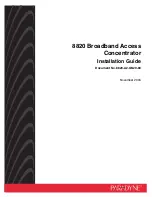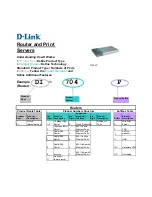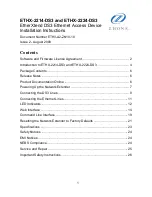
Advanced Configuration
92
6.13 RSTP/STP
6.13.1 Overview
Standardized in IEEE802.1D, the Spanning Tree Protocol (STP) is a LAN protocol used for
preventing broadcast storms caused by link loops and providing link backup. STP-enabled
devices exchange packets and block certain ports to prune "loops" into "trees", preventing
proliferation and endless loops. The drawback of STP is that a port must wait for twice the
forwarding delay to transfer to the forwarding state.
To overcome the drawback, IEEE creates 802.1w standard to supplement
802.1D.IEEE802.1w defines the Rapid Spanning Tree Protocol (RSTP). Compared with STP,
RSTP achieves much more rapid convergence by adding alternate port and backup port for
the root port and designated port respectively. When the root port is invalid, the alternate
port can enter the forwarding state quickly.
6.13.2 Concepts
Root bridge: serves as the root for a tree. A network has only one root bridge. The root
bridge changes with network topology. The root bridge periodically sends BPDU to the
other devices, which forward the BPDU to ensure topology stability.
Root port: indicates the best port for transmission from the non-root bridges to the root
bridge. The best port is the port with the smallest cost to the root bridge. A non-root bridge
communicates with the root bridge through the root port. A non-root bridge has only one
root port. The root bridge has no root port.
Designated port: indicates the port for forwarding BPDU to other devices or LANs. All
ports on the root bridge are designated ports.
Alternate port: indicates the backup port of the root port. If the root port fails, the alternate
port becomes the new root port.
Backup port: indicates the backup port of the designated port. When a designated port
fails, the backup port becomes the new designated port and forwards data.
Summary of Contents for SICOM3024P
Page 13: ...Product Introduction 6 management software and SNMP network monitoring...
Page 25: ...Device Status 18 Figure 15 System Operating Information SICOM3024...
Page 73: ...Advanced Configuration 66 Figure 67 Setting ACL Entry Parameters Group 2...
Page 145: ...Advanced Configuration 138 Figure 137 Dynamic Unicast FDB Table...
















































